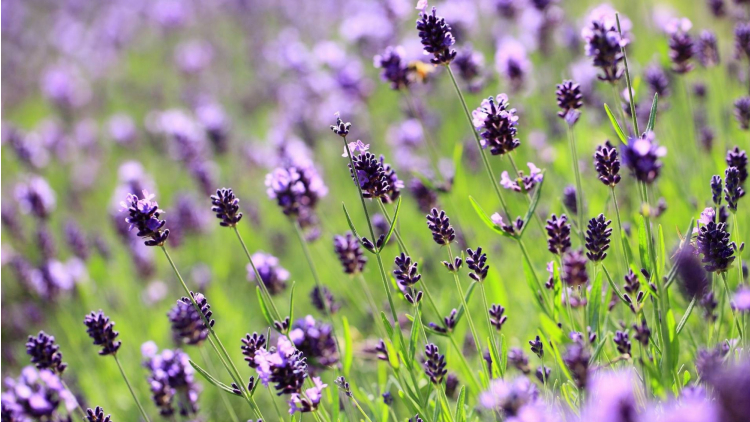Lavender Oil Is For Healing
By Willow Tohi | Сен 16, 2013

One of the most powerful forms of ancient medicine, aromatherapy, has been used for millennia to treat all manner of ailments. Use of essential oils, today called aromatherapy, was well documented in ancient Persia, Egypt, Greece, and Rome. There are more than 100 references to their use in the Bible for things like anointing and healing the sick. Today, essential oils are used for aromatherapy, massage, personal care, emotional balancing, and household uses, among others.
Essential oils come from the natural aromatic liquids found in plants, trees, and shrubs. The distinctive components that defend a plant against insects, environmental pollutants and disease, and allow it to grow and adapt to its surroundings, make up the plant’s essence. The essence is extracted from the plant’s flowers, leaves, roots, seeds, or peels into a concentrated volatile liquid, most often through steam distillation. They are highly concentrated and more potent than any dried herb. Essential oils will strengthen most holistic programs, including herbal and nutritional supplements.
The best-known healing oil
Lavender essential oil has many wonderful uses. One of the best known healing oils, lavender oil has a chemically complex structure with over 150 active constituents, which explains its effectiveness at helping with everything from insect bites to rheumatism. The botanical name, Lavandula, comes from Latin, lavare, which means “to wash,” probably for its history of use cleansing wounds, as well as washing linens and in personal bathing. It is a known anti-inflammatory, anti-fungal, antidepressant, antiseptic, antibacterial, antimicrobial, antispasmodic, analgesic, calmative, detoxifier, hypotensive, and sedative.
Among the most versatile of oils, lavender is very effective at soothing, calming, balancing (both mind and body), and revitalizing. It is used through inhalation, massage, bath or shower, humidifier or vaporizer, or added to skin and personal care products. Your female ancestors most likely used lavender water as perfume. It is good for all skin types including sensitive skin, unless the scent puts you off – this seems to be a built-in warning system useful for gauging your compatibility with all the essential oils. Too much can be toxic to any system, so obey your nose and avoid it if you don’t care for the smell.
Uses
Lavender oil has a well documented history of effectively treating burns and scalds. It’s pain relieving properties, combined with its antibacterial and antiseptic properties make it an effective wound treatment that stimulates the cells of a wound to regenerate more quickly, and prevent scarring. It is useful for treating headaches, insomnia, fever blisters, acne, anxiety, stress, and depression.
Learn more: http://www.naturalnews.com/042048_lavender_oil_healing_essential_oils.html#ixzz2f1jmM2ru















